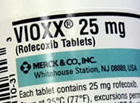|
|
|
Ohio Man Sentenced for Criminal Civil Rights Charges
Criminal Law |
2007/01/17 22:34
|
| David Fredericy, of Cleveland, Ohio, was sentenced today to serve 33 months in federal prison for conspiring to commit and for committing hate crimes targeting African-American residents of Cleveland, and for making false statements to federal investigators. During the sentencing hearing, U.S. District Judge Patricia A. Gaughan stated that she wanted to send "a message loud and clear that this conduct will not be tolerated." On October 26, 2006, Fredericy pleaded guilty to conspiring to interfere and interfering with the federally protected housing rights of an interracial family because of their race, and for making false statements to federal investigators. Another Cleveland resident, Joseph Kuzlik, pleaded guilty to the same charges on November 27, 2006, and is scheduled to be sentenced on February 21, 2007. Fredericy and Kuzlik engaged in a series of acts intended to threaten and intimidate African-American residents in their neighborhood. Among other acts, the defendants placed toxic mercury on the porch of a family with children for the purpose of intimidating them because they were an interracial family. In order to keep their unlawful actions secret, both Fredericy and Kuzlik lied to federal investigators from the Environmental Protection Agency (EPA), the federal agency that was initially charged with cleaning up the mercury and investigating the incident. Fredericy was ordered to pay restitution to the U.S. EPA and the Ohio EPA for the cost of cleanup, and was also ordered to pay restitution of a to be determined amount to individual victims who suffered financial losses as a result of the offenses. "Any vicious act of racism is deplorable," said Wan J. Kim, Assistant Attorney General for the Civil Rights Division. "What these men did is despicable, and the Justice Department will continue to vigorously prosecute those who violate the federally protected civil rights of others." "Today's sentence is a fitting conclusion to a joint effort by the FBI, the U.S. EPA, the Ohio EPA, and the Cleveland Police Department, and demonstrates the commitment of both state and federal law enforcement authorities to protecting every citizen's basic right to live in and enjoy his or her own home without fear of racial intimidation," said Gregory White, U.S. Attorney for the Northern District of Ohio. The case was prosecuted by Assistant U.S. Attorney Ann C. Rowland and Trial Attorney Kristy L. Parker of the Civil Rights Division. |
|
|
|
|
|
|
N.J. appeals court reinstates Vioxx lawsuit
Breaking Legal News |
2007/01/17 16:34
|
A New Jersey appeals court has revived a lawsuit that sought to force drugmaker Merck & Co. Inc. to fund a medical monitoring program for patients who took the painkiller Vioxx. The state appellate court ruled on Tuesday that N.J. Superior Court Judge Carol Higbee's decision to dismiss the lawsuit was premature and failed to give the plaintiffs the opportunity to prove legally accepted claims.
The appeals court said in a 26-page opinion that it was not expressing an opinion on the ultimate viability of the lawsuit. Plaintiffs in the case sought a court-administered medical screening program, funded by Merck (Charts), that would provide medical and diagnostic tests for each member of the class to detect potential heart problems arising from exposure to Vioxx."There is no medical science supporting the plaintiffs' position that they need to be monitored for cardiovascular conditions two years after Vioxx was voluntarily taken off the market," Merck attorney Ted Mayer said in an e-mailed statement.
|
|
|
|
|
|
|
Lawyer Bitten by Bed Bugs Sues London Hotel
Court Watch |
2007/01/17 16:28
|
| A New York lawyer is suing a leading London hotel after he and his wife were attacked by bed bugs. Sidney Bluming and his wife Cynthia are seeking several million dollars in damages from the Mandarin Oriental Hotel Group in the action filed at the US District Court, Manhattan. The couple claim they suffered hundreds of bites that left their skin red, swollen and itchy during a five-day stay at the Hyde Park hotel last May. They also say the bugs infested their luggage, which led to further problems in their apartment when they returned home. Mrs Bluming claims the trauma was made worse as she is recovering from cancer and her immune system is still weak.
Their lawyer, Michael Weinstein, said they were forced to fumigate their home and throw away clothing, bedding, luggage and personal effects. Mr Weinstein added: "People associate bed bugs with more of a lower end class of hotel. Clearly, that is not the case here. The Mandarin is as premier and luxurious as any hotel could make themselves out to be." Jill Kluge, communications director for the Mandarin Oriental Hotel Group, said: "We can confirm a regrettable, but isolated, incident of infestation occurred in May 2006 within one guest room at our London property. "On discovery, a full investigation was carried out and the problem fully rectified. There have been no subsequent incidents. The matter has been referred to our insurers. "Mandarin Oriental's policy is to operate with the highest standards of conduct, with stringent hygiene systems and processes in place at all of our hotels to safeguard the health and safety of our guests." The hotel chain is accused of fraud, negligence, recklessness, intentional infliction of emotional distress deceptive trade practice and nuisance. |
|
|
|
|
|
|
Oil prices rally to close above $52
World Business News |
2007/01/17 16:21
|
Oil prices rallied more than $1 Wednesday to close above $52 after floundering through a volatile trading session that saw crude briefly bottom at a new 19-month low. The market searched for direction in the lull between Tuesday's comments by Saudi Arabia's oil minister advocating no further production cuts and Thursday's scheduled release of petroleum inventory data. A barrel of crude hasn't settled below $50 since May 24, 2005. But prices came close Tuesday, sliding as low as $50.28 in early trading before recouping the losses. The price of crude has plunged 14 percent since the year began due to weeks of unusually warm weather in the Northeast and an influx of short positions in the market, or bets that prices would fall. |
|
|
|
|
|
|
Apple First-Quarter Profit Rises on IPod
World Business News |
2007/01/17 16:21
|
| Apple Inc. said first-quarter profit jumped 78 percent after holiday shoppers snapped up iPod digital music players and Macintosh computers. Net income rose to $1 billion, or $1.14 a share, from $565 million, or 65 cents, a year earlier, Cupertino, California-based Apple said today in a statement. Sales rose 24 percent to $7.12 billion. Analysts anticipated profit of 78 cents, according to the average of 14 estimates compiled by Bloomberg. Apple sold a record 21.1 million iPods after Chief Executive Officer Steve Jobs stoked holiday demand by releasing smaller, less-expensive and higher-capacity models. Updated Macs with faster chips from Intel Corp. helped drive shipments to 1.61 million machines. Sales gained in the U.S. and abroad. ``The results today confirm that Apple's product portfolio is a superior offering to the market place,'' said Glen Kacher, a fund manager at Integral Capital Partners in Menlo Park, California, which owns Apple shares. This year ``should be a victory lap for Apple.'' Profit and sales this quarter will fall short of analysts' estimates. Apple forecast earnings of 54 cents to 56 cents a share, compared with the 60-cent average analyst estimate. The company expects sales of $4.8 billion to $4.9 billion, below analysts' average estimate of $5.23 billion. |
|
|
|
|
|
|
Curtis Partner Antonio Prida featured in Entorno
Law Firm News |
2007/01/17 14:53
|

Curtis partner Antonio M. Prida was featured in the January edition of Entorno, a news magazine of the Confederation of Employers of the Mexican Republic (COPARMEX), as the co-author of "A Proposed Agenda for an Electoral Reform." Mr. Prida's article indicates that past presidential elections in Mexico showed the strength of the electoral institutions which withstood pressure from populist parties and non-governmental groups. However, Mr. Prida also proposes reforms to the election laws in order to avoid the post-electoral drama witnessed by the world.
www.cm-p.com
|
|
|
|
|
|
|
Top Manhattan law firm in gay lawsuit
Breaking Legal News |
2007/01/17 13:37
|
One of New York's most prestigious law firms is being sued for discrimination on the grounds of sexual orientation by one of their own lawyers. 28-year-old associate Aaron B Charney says in his suit that senior colleagues subjected him to "lewd and illegal conduct," The New York Times reports. Sullivan & Cromwell, founded in 1879, is one of America's best known - and profitable - law firms. It is particularly reknowned for its work on mergers and acquisitions, and it is this department that is the focus of the lawsuit. While secretarial and other staff have sued law firms in the past for harassment, as an associate lawyer in his fourth year at the firm, Mr Charney is an unusual claimant. The legal action could have a negative impact on his future career. "The day I derailed my career was the day I complained about the discrimination," he told the Times. He added that he will be representing himself in court as no other lawyer is willing to take on Sullivan & Cromwell. Mr Charney wants a jury trial and is asking for undisclosed damages. He alleges that he was the victim of discrimination and retaliation. A senior colleague accused him of having a sexual relationship with a fellow employee and demanded he be fired. Mr Charney denies the relationship was sexual. His boss also alluded to the alleged relationship, telling Mr Charney to put an end to it. He also alleges he was subject to sexually suggestive behaviour by partners. The chairman of Sullivan & Maxwell released an email statement to The New York Times denying the accusations. |
|
|
|
|
|
|
Class action or a representative action is a form of lawsuit in which a large group of people collectively bring a claim to court and/or in which a class of defendants is being sued. This form of collective lawsuit originated in the United States and is still predominantly a U.S. phenomenon, at least the U.S. variant of it. In the United States federal courts, class actions are governed by Federal Rules of Civil Procedure Rule. Since 1938, many states have adopted rules similar to the FRCP. However, some states like California have civil procedure systems which deviate significantly from the federal rules; the California Codes provide for four separate types of class actions. As a result, there are two separate treatises devoted solely to the complex topic of California class actions. Some states, such as Virginia, do not provide for any class actions, while others, such as New York, limit the types of claims that may be brought as class actions. They can construct your law firm a brand new website and help you redesign your existing law firm site to secure your place in the internet. |
Law Firm Directory
|
|







